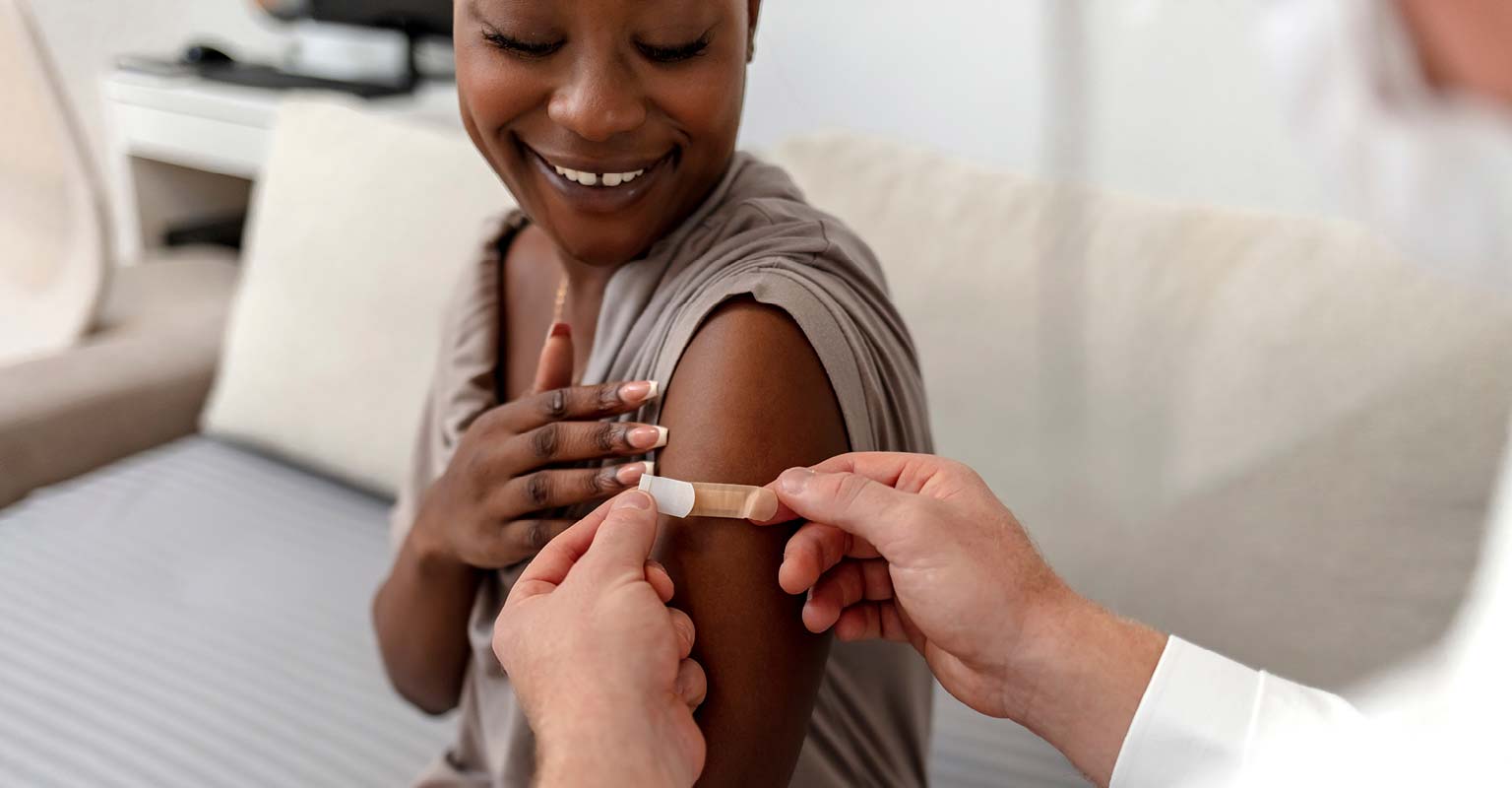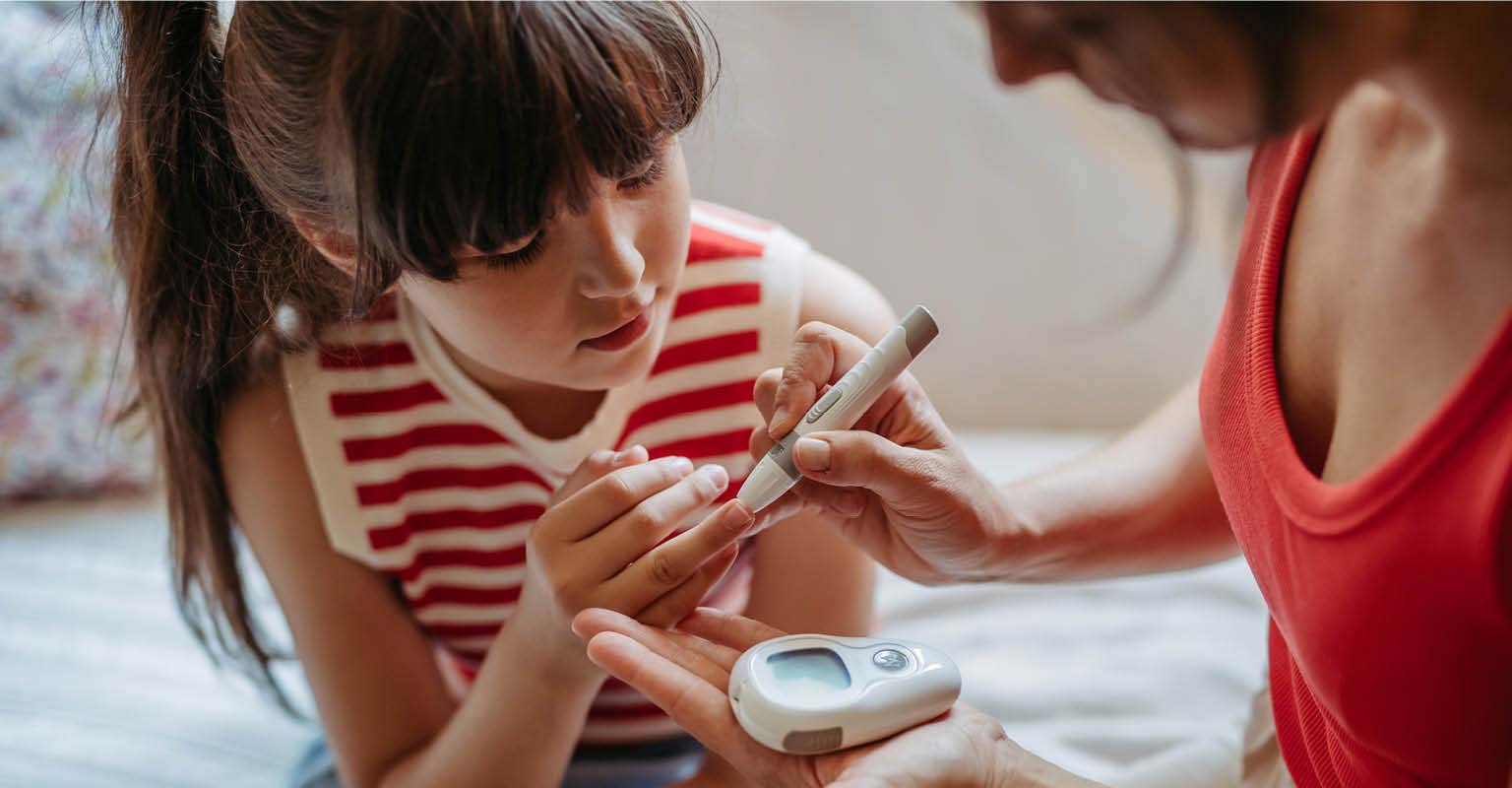US Family Health Plan eNews | ISSUE 2 | 2024
Posted 05/28/24
To see more editions of eNews Member Newsletter
IN THIS EDITION:
Naloxone: US Family Health Plan CoverageDid you know that your US Family Health Plan covers naloxone—a life-saving medication used for known or suspected opioid overdoses? Prescription opioids can be used to help relieve moderate-to-severe pain and are often prescribed following a surgery or injury, or for certain health conditions. While these medications can be an important part of treatment, they also carry serious risks of addiction, accidental overdose, and death. Opioid overdose can occur in anyone, even if taking opioids as prescribed. Certain chronic conditions such as respiratory conditions, and certain other medications such as benzodiazepines (e.g., lorazepam, diazepam, etc.) can increase this risk. Naloxone can be given during an opioid overdose and may reverse the effects. If you have an opioid overdose, naloxone could save your life and having it available could provide some peace of mind for you and your family members. If you are at risk of a possible opioid overdose, we encourage you to talk with your doctor about getting a prescription for naloxone or purchasing it over the counter. |
How is naloxone covered under your US Family Health Plan?With a prescription, you can receive prescription naloxone nasal spray and naloxone injection under your pharmacy benefit with a tier 1 copay at retail pharmacies and the Martin’s Point Mail-Order Pharmacy. There is a limit of 2 cartons (containing 2 nasal sprays each) per fill. With a prescription, you can also receive over-the-counter naloxone nasal spray under your pharmacy benefit with a $0 copay at retail pharmacies and a tier 1 copay at the Martin’s Point Mail-Order Pharmacy. There is a limit of 2 cartons (containing 2 nasal sprays each) per fill. |
Over-the-Counter (OTC) Options:You can purchase OTC naloxone (Narcan®) nasal spray without a prescription at full cost and seek reimbursement for the total cost you paid. To Get Reimbursed:
CVS/Caremark |
Living with DiabetesOptimize your health and wellness!Understanding DiabetesDiabetes is a lifelong, chronic condition where there is not enough insulin in the body to effectively help with digestion. Food is broken down during digestion into sugar (glucose). Insulin helps change the sugar and starches into energy that the body needs throughout the day. Without enough insulin, glucose builds up in the blood and is a sign of diabetes. High blood sugar can harm many parts of the body, including the eyes, heart, blood vessels, nerves, and kidneys. It can also increase your risk for other health problems and complications. There are two types of diabetes:
|
Making Healthy Lifestyle ChoicesManaging diabetes begins with making healthy lifestyle choices, including the following:
The American Diabetes Association goals for blood sugar (your doctor’s targets for you may differ):
|
Management and Treatment by Your ProviderYour provider will tell you how often they would like to see you to monitor your diabetes. At a minimum, you should have yearly monitoring of the following:
|
Resources and Further ReadingPlease visit our Diabetes Wellness Guide on our website for more self-care tips and care management support available through your Martin’s Point US Family Health Plan. For more information and statistics, visit: What is diabetes? | CDC |

Direct-to-Consumer Prescription Drug AdvertisingThe Pros and ConsDrug companies advertise directly to consumers through TV commercials, magazine ads, and on social media. These ads have increased dramatically in recent years and have both advantages and drawbacks. Some of the benefits include providing education on conditions and treatments that you may not have been aware of and can result in you being more involved in your health care. They can also reduce stigma around certain health conditions and encourage you to have in-depth conversations with your provider. Seeing an ad for a medication you are currently taking can even remind you of the benefits of taking it as prescribed. Some drawbacks include little regulation on what manufacturers can use for content, providing limited information on potential side effects and risks. Ads may lead people to ask for medications they don’t need. The Food and Drug Administration (FDA) regulates ads for prescription drugs, but doesn’t review any marketing before ads are used and, in most cases, the FDA sees the ads at the same time as the public (although many drug companies will seek advice from the FDA before releasing TV ads). Requirements do include listing at least one approved use for a drug, the generic name, and all risks of the drug. However, ads are NOT required to tell consumers the medication cost, if there is a generic version, if there are similar drugs with fewer or different risks, how and how quickly the drug works, and if any changes in your behavior (for example, diet) could help your condition. More information can be found on the FDA website. If you see an ad for a medication that you think you may benefit from, we encourage you to do more research, including:
If you hear that a medication is working well for someone else, it’s important to understand that effectiveness can vary from person to person. Be open to discussing other options your provider may suggest as they may be aware of other medications (some less costly), and non-medication measures which may work better for you. |
Immunizations from Infancy through AdulthoodStay on Schedule for the Best ProtectionVaccines are the best defense against many serious (and preventable) diseases. Keeping up with recommended vaccine schedules throughout all life stages is one very important key to maintaining your and your family’s best health. Vaccines are also the best way to protect your greater community—especially those members who are too young, too old, have a weakened immune system, or a health condition that makes them especially vulnerable to serious health problems if they become ill. The Centers for Disease Control and Prevention (CDC) recommends that multi-dose vaccine series (multiple doses over time) be started and completed on time for the best protection. Hundreds of the country’s top doctors, public health professionals, and scientists carefully design vaccine schedules to provide safe and effective protection at the right time. |
Infancy to age 2 years:Babies are born with some immunity and breastfeeding also provides some immunity, however, your child is not protected from many of the 14 potentially serious diseases vaccines protect against. Young children have the highest risk of having a serious case of disease that could cause hospitalization or death. Vaccinating your child early, before they are exposed to the potentially dangerous diseases, is the best protection. If vaccines are missed, ask your child’s provider about creating a catch-up schedule. |
Toddlers to teens:Several of the vaccines recommended at this life stage are additional doses or boosters of immunization series begun as infants. Additional vaccines typically recommended by the CDC for children/adolescents before the age of 12 include:
DID YOU KNOW? More than 42 million Americans are infected with types of HPV that are known to cause disease, including cancers. Approximately 13 million Americans, including male and female teens, become infected with HPV each year. |
Adults aged 19+:As childhood vaccine immunity wears off over time, adults need to keep their vaccinations up to date. Additionally, there are different diseases you are exposed to as an adult for which vaccines offer excellent protection. Recommended vaccines for people 19 years of age and older include:
|
Pregnant?See this issue’s article about Prenatal Visits for information about which vaccines offer protection for both you and your baby. |
|
View Vaccine Schedules: In addition to the vaccines listed above, other vaccines may be recommended. For more information, the full list of vaccines, and immunization schedules for all ages, please see Vaccines and Immunizations | CDC. |
Importance of Prenatal Visits and Testing during PregnancyAs soon as you know you're pregnant, start your prenatal care by making an appointment with your doctor or certified midwife. Your first prenatal visit will provide information that can be used to check for any problems as your pregnancy progresses. It's also a good time to think about how you want to partner with your doctor or midwife throughout your pregnancy. |
|
Your First Trimester
|
Your Second Trimester
|
Your Third Trimester
Keep up with your pregnancy journey in all trimester stages by downloading the convenient guide below. It includes helpful checklists, health and nutrition information, and more: Your Pregnancy Journey (PDF) |
|
Vaccinations and More ResourcesVaccinations during Pregnancy: It is very important to receive the recommended immunizations when you are pregnant—for your own health and the health of your baby. Both the flu shot and the Tdap are considered safe and effective during pregnancy. Additional information on pregnancy and vaccinations (including RSV and COVID-19) can be found at the CDC website here: Vaccines During and After Pregnancy | CDC More Resources for Expectant Mothers: Additional prenatal care information along with an interactive online tool to refer to any time during your pregnancy can be found here: Pregnancy and Childbirth (healthwise.net) |
|
Connect with a Maternity Nurse Care Manager!Contact us as soon as you know you are pregnant so we can support you! Members can connect with a Martin’s Point nurse care manager to receive personal support during pregnancy and after delivery. The Maternity Support Program is available to members who are pregnant or new mothers from the first day of pregnancy up to six to eight weeks after delivery. If you have questions or concerns about seeing your provider or what care you need, please contact us at 1-877-659-2403. |
|
On a Statin Medication?Make sure to take it as directed.If you have been prescribed a statin medication to treat high levels of cholesterol, one of the best things you can do for your health is to take it as prescribed by your doctor. Taking the right dose, at the right time, and in the right way ensures that you get the most benefit from your medication. Doing this, along with other lifestyle changes recommended by your health care provider, can help prevent complications of cardiovascular disease such as heart attack and stroke. |
Why is it important to take your statin?Statin therapy reduces the risk of heart attack, stroke, and death from cardiovascular disease. Statins work to reduce cholesterol and studies have shown that the risk of heart attacks and stroke is reduced by approximately 20-25%, and related deaths are reduced by 10%. |
Here are some tips to help you continue to take your medications correctly:
|
Communicate with Your Health Care ProviderIf your dose or directions have changed, make sure to ask your provider to send in an updated prescription. It is very important that you let your doctor know if you are not taking your medications as directed. You may need to alert them if costs or side effects are a challenge, if you are having trouble remembering to take your medication, if you are having trouble getting refills at your pharmacy, or if you are unsure when the best time to take your medications is. We’re here for you! We want to make sure you have the information and support you need to take your medications correctly. Be sure to talk with your doctor or pharmacist about any concerns. Please note: It can take up to 14 days to receive your order from our Martin’s Point Mail-Order Pharmacy. |
Cervical Cancer and ChlamydiaAsk your provider if it’s time for screenings!If you have a cervix, regular screenings for cervical cancer could save your life. If you have additional risk factors for sexually transmitted infections, screening for chlamydia could prevent long-term health problems associated with this common disease. |
CERVICAL CANCER:This cancer starts in the cells that line the cervix (lower part of the uterus). Symptoms can vary from pelvic pain during sexual intercourse, irregular or heavy menstruation, fatigue, nausea, or weight loss. Treatments include surgery, radiation, and chemotherapy. Regular cervical cancer screening tests can help prevent cervical cancer or detect it early. The Pap (Papanicolaou) test or smear looks for precancers, cell changes on the cervix that might become cervical cancer if not treated appropriately. The human papillomavirus (HPV) test looks for the virus cells that are most likely to cause cervical cancer.
|
CHLAMYDIA:Chlamydia is one of the most common sexually transmitted infections (STIs) in the US and is most often found in persons aged 15-24. These factors increase the risk for getting chlamydia:
Because most people with chlamydia feel no symptoms, they don’t seek treatment, increasing the risk of spreading the disease to multiple partners, and experiencing long-term problems like pelvic inflammatory disease, infertility, ectopic pregnancies, and chronic pelvic pain (CDC). Screening for Chlamydia: Screening can be done on a urine sample or on samples taken with a swab from the vagina, mouth, throat, rectum, or cervix. A yearly screening test is recommended for sexually active women 16 to 25 years old and for women 25 years or older who have one or more risk factors listed above. This routine preventive screening is painless and is a covered benefit. Treatment: Treatment can include a course of antibiotics. Chlamydia can be passed to sexual partners even during treatment. Possibly affected sexual partners should also be tested and, if needed, treated for chlamydia and should avoid sexual contact until treatment is finished. A three-month follow up test should be completed to ensure the infection has cleared up. For more information and statistics visit: STD Facts - Chlamydia (cdc.gov). |
Community Health Worker TeamAs part of our commitment to community well-being, we’re happy to continue with an introduction to our Community Health Worker team! Their goal is to empower our members to take control of their health by helping them get the care they need. This important initiative aims to promote health and wellness within the communities we serve. As advocates for your well-being, we believe that access to immunizations and preventive health screenings is essential for safeguarding against illness and ensuring long-term vitality. |
How Do Community Health Workers Help?Certified Community Health Workers focus on community-based preventive services and resources. They support, educate, and advocate for members who may have barriers to getting important health care. They provide these key services:
|
Prevention is Job #1: What to Expect If You Get a CallOur Community Health Worker team may reach out to talk about the preventive health screenings that are recommended for you based on your age, gender, and medical history. During our call, we can discuss the importance of these screenings, address any questions or concerns you may have, and help you understand how to schedule and prepare for them. Your health is important to us, and we're here to support you every step of the way! |
Health and Wellness Resources
|
Supporting Military Families in Our CommunitiesDid you know that Martin’s Point works with community partners to support our community? Please visit our partners including:
To learn more about how Martin’s Point is making a difference in the communities we serve, check out our 2023 Community Impact |
June is Men’s Health Month!Learn steps you can take to avoid heart disease and other health conditions that commonly affect men. Visit MartinsPoint.org/MensHealth |
Discover the Power of the Member Portal!
Instant access to your personal health plan details, 24/7.- View claims, authorizations, and referrals
- Browse your Explanation of Benefits (EOBs)
- Request a copy of your member ID card
- Update your PCP with ease

USFHP eNews | ISSUE 1 | 2024
In this 2024 edition:
• Managing Your Blood Pressure
• Feeling Lonely? Know You’re Not Alone
• Introducing Our New Community Health Worker Team!
• and more!

USFHP eNews | ISSUE 4 | 2023
In this 2023 edition:
• Flu Season Is Here
• Diabetes and Respiratory Health and Wellness Resources
• It’s Time to Try the Member Portal!
• and more!



.ashx?w=380&h=auto&hash=275377FE7F68DFAF97751E7EA70DA5BD)